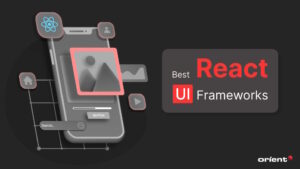In today’s digital age, having an online presence is essential for organizations of all kinds. Whether you are a small startup, a well-established company, or a solo entrepreneur, a well-designed and functional website can be the foundation of your brand’s success. When building a website, one of the first decisions you’ll face is choosing between using a website builder or opting for custom development.
Both approaches have their merits, and the right choice depends on your goals, budget, and technical expertise. In this article, we’ll explore the key benefits of using website builders compared to custom development, backed by data, and highlight the pros and cons of each option to help you make the best decision for your business.

Understanding Website Builders vs. Custom Development
Before diving into the benefits, let’s clarify what we mean by “website builders” and “custom development”:
- Website Builders : These are online tools or platforms that allow users to create websites without writing code. Popular website builders include Wix, Squarespace, Shopify, and WordPress.com. These platforms typically offer drag-and-drop interfaces, customizable templates, and a range of built-in features for easy site creation.
- Custom Development : In contrast, custom development involves building a website from the ground up using code (HTML, CSS, JavaScript, etc.) and potentially leveraging frameworks such as React, Django, or Laravel. Custom development can be handled by in-house teams or outsourced to professional web developers or agencies.
The Benefits of Custom Development
1. Complete Design Flexibility
Custom development allows you to build a website tailored to your exact needs, providing total creative freedom. Developers can design a website from scratch, including any advanced functionality, integrations, or animations that aren’t possible with website builders.
- Stat: A survey by Sweor found that 38% of visitors will stop interacting with a website if the layout is unattractive. Custom development gives businesses the flexibility to create unique, engaging designs that stand out..
Pros
- Unlimited design possibilities
- Ability to build a site perfectly aligned with your brand identity
- Custom animations, transitions, and interactions
Cons
- Higher costs for design and development
- Time-intensive process
2. Enhanced Performance and Scalability
A custom website can be optimized for speed and performance in ways that template-based website builders often can’t match. For businesses expecting significant growth or heavy traffic, custom development offers more scalable solutions.
- Stat: Google research indicates that 53% of mobile users abandon a site if it takes longer than 3 seconds to load. Custom development can result in faster load times and better user experience by reducing bloat and unnecessary features.
Pros
- Enhanced performance for high-traffic sites
- Customized scalability options as your business grows
- Optimized code for better speed and SEO performance
Cons
- Requires ongoing technical maintenance
- Higher hosting and server management costs
3. Full Control Over Features and Functionality
With custom development, you have control over every aspect of your website, from the design to the backend code. This is crucial for businesses that require complex features such as custom APIs, integrations with other systems, or advanced e-commerce capabilities.
Pros
- Ability to integrate unique features not available with website builders
- Custom integrations with third-party tools or systems
- More control over SEO, analytics, and marketing tools
Cons
- Development costs can be significant
- Requires a development team to implement and maintain features
4. Security and Data Privacy
Custom development allows for a higher degree of control over security features and data protection measures. Businesses dealing with sensitive customer information, such as financial data or personal records, may benefit from the enhanced security options available with a custom-built site.
Pros
- Custom security protocols tailored to your business’s needs
- Full control over data handling and encryption
- Better compliance with industry-specific regulations
Cons
- Requires significant investment in security infrastructure
- Responsibility for maintaining security measures rests on your team
5. No Platform Lock-In
With custom development, you’re not locked into a specific platform or service provider. You own your code, design, and content, giving you the flexibility to move your website to a different hosting provider or make significant changes without relying on a third-party platform.
Pros
- No dependency on a specific platform or service
- Freedom to move your website to another host
- Full ownership of your site’s code and assets
Cons
- Requires technical expertise to manage hosting and maintenance
- Switching to a new hosting provider can be complex and costly
The Benefits of Custom Development
1. Complete Design Flexibility
Custom development allows you to build a website tailored to your exact needs, providing total creative freedom. Developers can design a website from scratch, including any advanced functionality, integrations, or animations that aren’t possible with website builders.
- Stat: A survey by Sweor found that 38% of visitors will stop interacting with a website if the layout is unattractive. Custom development gives businesses the flexibility to create unique, engaging designs that stand out..
Pros
- Unlimited design possibilities
- Ability to build a site perfectly aligned with your brand identity
- Custom animations, transitions, and interactions
Cons
- Higher costs for design and development
- Time-intensive process
The Benefits of Using Website Builders
1. Cost-Effective Solution
One of the most significant advantages of website builders is their affordability. Building a custom website can be expensive due to the time, effort, and expertise required for coding, design, and functionality. Website builders, on the other hand, are often available at low monthly or yearly subscription fees.
- Stat: According to a survey by Tech.co, website builder pricing typically ranges from $10 to $50 per month. In contrast, a custom-built website can range anywhere from $5,000 to $50,000, depending on its complexity.
Pros
- Lower upfront costs
- Subscription-based pricing makes it more accessible for small businesses
- Free or affordable templates available
Cons
- Additional costs for premium features or integrations
- Subscription fees may add up over time
2. Speed and Ease of Use
Website builders are designed to be user-friendly, allowing even non-technical users to create websites quickly. Drag-and-drop functionality, pre-designed templates, and built-in hosting services streamline the process of getting a website up and running in a matter of hours or days.
- Stat: A study from GoodFirms found that 58.3% of businesses that used website builders were able to launch their websites within 1 to 2 weeks, while custom development often takes months to complete.
Pros
- Quick setup, perfect for tight deadlines
- No need for coding or design experience
- Step-by-step guidance through the website creation process
Cons
- Limited flexibility when it comes to deep customization
- Less control over advanced technical features
3. Pre-Designed Templates and Themes
Website builders offer a wide range of pre-designed templates and themes that cater to different industries, aesthetics, and functionalities. These templates are often mobile-responsive and optimized for user experience (UX) and search engine optimization (SEO) out of the box.
- Stat : In a HubSpot survey, 51% of respondents said a well-designed website was the top factor for determining a company’s credibility. Website builders make achieving a professional design accessible to non-designers.
Pros
- Access to a variety of customizable templates
- Templates are mobile-optimized
- Consistent and clean designs without needing a professional designer
Cons
- Templates may look similar to other websites using the same builder
- Limited ability to change core aspects of design
4. Built-In Tools and Integrations
Most website builders offer integrated tools and apps, such as email marketing systems, e-commerce solutions, social media integrations, and SEO optimization tools. These features make it easy to manage essential aspects of running an online business without needing to install or maintain third-party services.
- Stat : According to WebFX, businesses that invest in SEO see an average ROI of 380%. Many website builders provide SEO tools that can help users optimize their websites without advanced technical knowledge.
Pros
- All-in-one platforms provide hosting, analytics, and marketing tools
- Easy integration with third-party services like Google Analytics or Shopify
- Built-in security features, including SSL certificates and backups
Cons
- Limited to the features offered by the platform
- May require upgrading to premium plans for advanced tools
5. Continuous Updates and Maintenance
Website builders manage most of the technical upkeep for you. From hosting services to security updates and software maintenance, these platforms ensure that your site is running smoothly without you having to worry about the technical details.
Pros
- Automated updates and maintenance
- Security patches are applied without your intervention
- Hosting and SSL certificates are often included
Cons
- Less control over server configurations or custom security features
- Dependence on the platform’s security protocols and reliability
Conclusion: Which is Right for You?
Choosing between a website builder and custom development depends on your unique needs and goals. For small businesses, startups, or individuals looking for a quick, affordable, and easy-to-manage solution, website builders provide a practical and accessible option. They offer convenience, built-in features, and ease of use without needing technical expertise.
However, if your business requires a highly customized, scalable, and performance-optimized solution, custom development is the way to go. Custom-built websites provide the flexibility to create unique designs and integrate advanced features that align with your specific goals.
In short, website builders are ideal for those seeking affordability and simplicity, while custom development is best for those who need complete control, scalability, and performance. Evaluate your business’s current needs, budget, and long-term goals to determine which option best aligns with your vision.










1 Comment
“Very informative post! I learned a lot from your expertise. Thanks for sharing!” Keep up the good work👍🏻